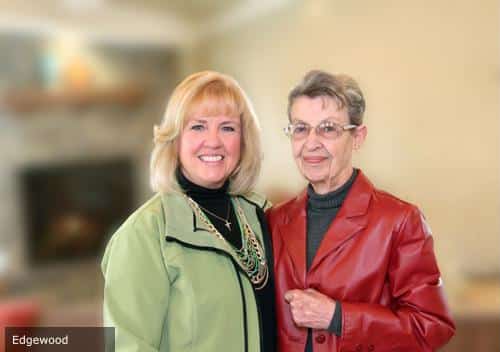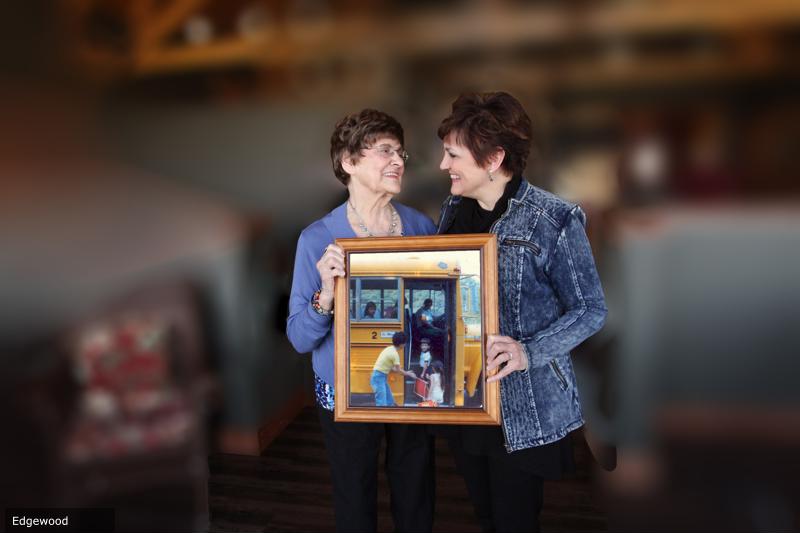
Dementia and memory loss are unfortunate realities of aging. Many seniors prepare for these possibilities by moving into a retirement community or assisted living community. That way, seniors can be sure that their care needs are met as they grow older. Moving into a community with memory care services can also help ensure that seniors will be provided for if they encounter cognitive problems.
But dementia, memory loss, and related conditions like Alzheimer’s disease affect more than just the individual. Family and friends of a senior living with memory loss are just as impacted by the condition. Dementia and Alzheimer’s are cruel to everyone involved, and it can be incredibly difficult to watch such diseases set in and rob seniors of memories, skills, and personality.
Find Senior Living Near Me
In reality, nobody can prepare for a loved one not to recognize the face of a child or spouse—which can complicate visits to a senior living in memory care. However, that doesn’t mean family and friends can’t plan for such visits. Here are some tips to keep in mind that can help seniors and families enjoy the time together even if memory loss is a factor:
Schedule the Visit Ahead of Time
Dropping in unannounced often isn’t the best route to go when a loved one is living with memory loss. Dementia can have unpredictable effects on mood, which may manifest in anger, outbursts, or confusion. If coming by on a bad day, not much can be done to have a positive encounter. Though making appointments to see family may seem overly formal, sometimes it’s necessary for seniors with memory loss and staff attending to them.
One tip is to try to keep visits to the morning or schedule them for periods of the day you’ve noticed are good for your loved one. Targeting the morning is often done to avoid “sundowning.” Late-afternoon agitation and worsening of dementia symptoms have been observed in a wide population of such residents, and this points to a time that family and friends may want to avoid entirely if they want a productive visit.
Bring Photos or Some Material
Reminiscing about the good times is a common activity when visiting a senior in retirement, and it’s a topic that can be broached with loved ones who suffer from memory loss. While the feasibility of doing so may depend on the stage of dementia, seniors and their visiting loved ones can still enjoy such exercises—if planned out correctly. For instance, bring photos or scrapbooks with you, as just asking a loved one if they “remember when” can cause anger when that individual has trouble remembering. Bringing photos or fridge door artwork with you to have seniors touch, feel, and look at makes the visiting experience much more engaging and pleasurable.
Try Not to Take Things Personally
This piece of advice is easier said than done. When in the position of a child, spouse, parent, or friend and asked “Who are you?” by a loved one, there’s no sage wisdom that can prepare you for the emotional pain. The only thing to remember is that such a response is the disease, not the person. Cognitive decline can inspire foreign and erratic behaviors in loved ones, and they become hostile in confusion. Family and friends who visit seniors with such experiences may find solace in speaking with others who’ve encountered the same thing. Support groups can be used to reach greater acceptance of the disease. Each visit may become easier with time and understanding.

Don’t Point Out Shortcomings
It wouldn’t be uncommon for a visiting relative or friend to be asked the same question by a senior a few times over. Sometimes it may be about a conversation that happened a week ago, or it could be in reference to an event that took place decades ago. Either way, it can be frustrating to have to give the same answer to the same question. But letting that irritation get the better of you may have consequences for the visit, which could turn sour if a loved one with memory loss feels attacked. Instead, try to get creative when pressed with the same query repeatedly. Try deflecting on the fourth or fifth ask by redirecting the conversation toward a subject you know will work or just interjecting with a joke.
Use Eye Contact and Body Language
“Making the most of a visit takes some planning and preparedness.”
Nonverbal communication is important to master when visiting a loved one with memory loss issues. Dementia and Alzheimer’s may negatively impact thinking abilities, speech, and other motor skills. Family and friends can try to overcome this obstacle by using eye contact and body language to communicate, which may encourage your loved one to do the same. Whenever speaking, always face toward the senior and demonstrate your interest by nodding, smiling, or raising your eyebrows. It’s also possible to communicate love and support nonverbally through touch, like hugs or pats on the leg.
Help Them to Explore Emotions
When a loved one is going through the first stages of memory loss and trying to come to terms with what’s happening to them, it’s natural for seniors to turn to those closest to them. As a visiting relative or friend, the conversation may turn inward as a loved one might try talking through their emotions and fears. It can be difficult to bring up, but confronting the disease can help bring closure and understanding. It’s not exactly playing therapist, but more so lending a sympathetic ear. Loved ones can draw strength and comfort from knowing family and friends are there for them.
In any case, visiting a loved one suffering from dementia or Alzheimer’s may be a nuanced affair. It requires a soft touch to interact with seniors dealing with memory loss, and not everything may be the same as it always was when talking with mom or grandpa. Each family will deal with it differently according to their own personal situations, but the above advice can come in handy when trying to make visits productive and fun.
Another way to care for a loved one with cognitive decline is to find them the best care services. Talking to Edgewood can help families settle on the best location that can provide memory loss services and handle advancing care needs. Contact us today for more information.




